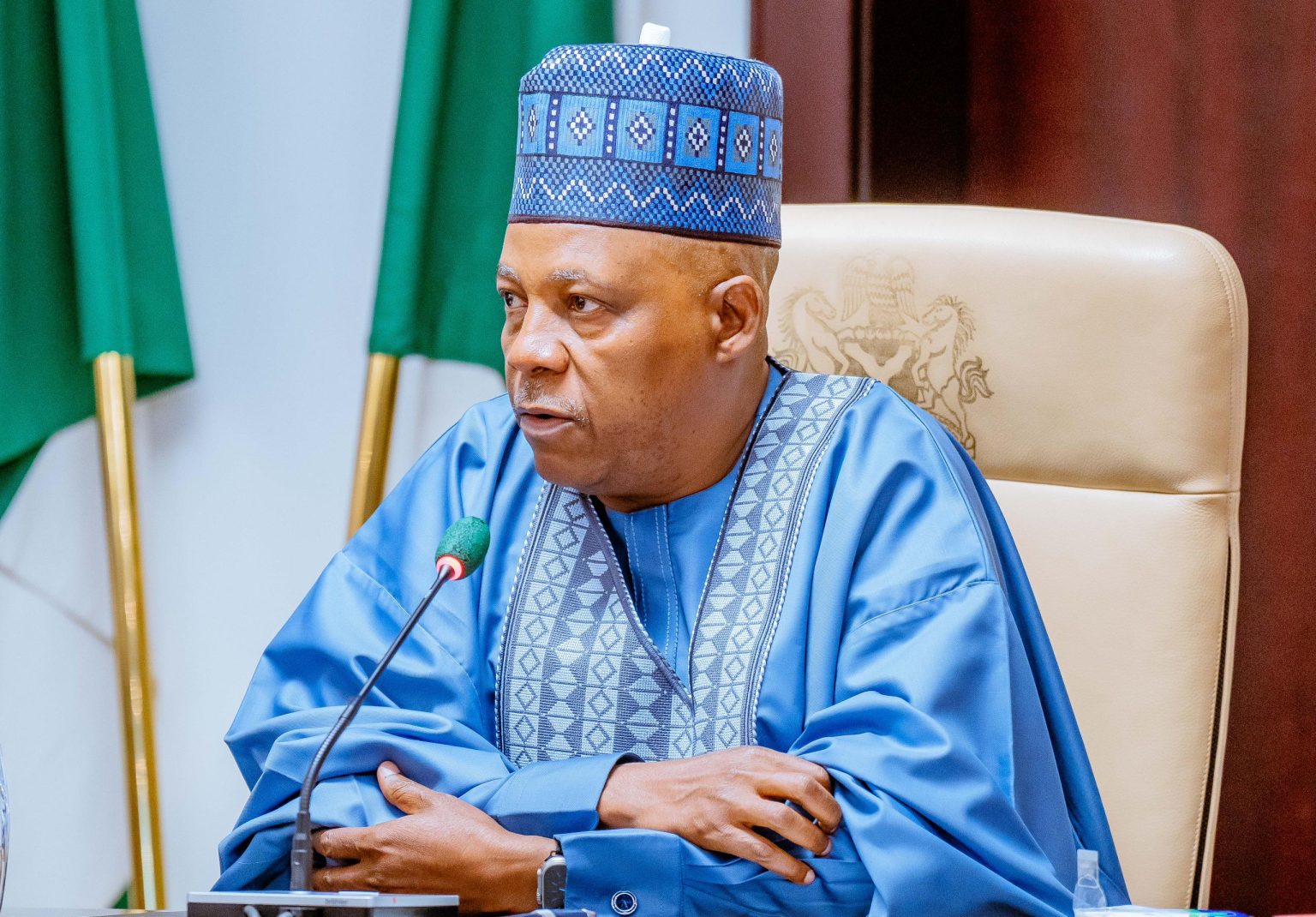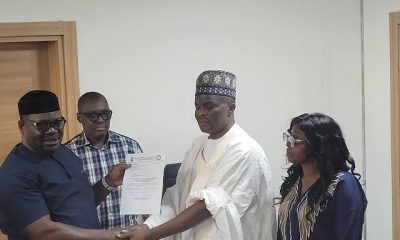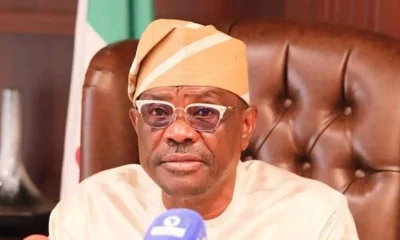News
Disappearing zoos: our kids only know textbook animals – parents

Some Nigerian parents have stated that their children only know wild animals from textbooks because zoos where the animals can be seen live are disappearing.
The parents from the North – West who spoke during a survey conducted by the News Agency of Nigeria (NAN) added that their children were eager to see the animals live.
Some of the parents including those in
Sokoto metropolis and environs have sought for the establishment of zoos to tackle the challenge.
On his own part, Sokoto State Commissioner for Fishery and Livestock, Prof. Abdulkadir Junadu, said government intended satisfying the request of the parents and other members of the public.
However, Junadu also urged corporate organisations and individuals, to jointly establish zoos in the state.
Residents of Katsina metropolis are also calling on their state government to establish zoos to enable them have a place for recreation, especially during weekends.
Alhaji Muhammad Imran, a civil servant, said it was unfortunate that there was no zoo in the state.
“If such a place exists in the city, people can go there during their leisure time to see animals and have some rest, especially during weekends.
“Therefore, I am appealing to the state government to establish such a place in the city so that after our busy work days, we can go with our family,” Imran said.
Another resident, Malam Suleiman Nuhu, a businessman, said there was need to establish zoos in the state, not only by the government, but also by individuals.
“I think if the government cannot do such, other individuals can make efforts. Apart from being a recreation place, it can serve as a source of revenue,” Nuhu suggested.
Some experts have attributed the decline in establishment of zoological gardens and their patronage to urbanisation and the downturn in the country’s economy.
The experts and operators also said that the huge expenses involved in managing zoos had discouraged even the authorities, just as the ones available never received the desired financial attention.
According to them, government and private individuals prefer to invest in other hospitality businesses with less risks and high profit that require less management expertise.
They noted that the profit in managing a zoo was not worth the effort considering the huge capital investment in the business and the manpower stress.
In Kaduna, NAN observes that many of the popular zoos in the metropolis have been shut, while the few remaining ones have degenerated for lack of maintenance and patronage by Nigerians.
Mr Elkana Buckly, a zoologist and curator of the National Museum in Kaduna, said anywhere there was urbanisation, it affected the natural environment.
Buckly said that the contemporary economic situation had led to hunting of some of the animals, which should have been kept in the zoo, or allowed in game reserves.
“Long time ago, it is not every animal that village hunters hunt even if they see them at the closest vulnerable position or place.
“Sometimes, the animals even rest on road passages linking one community to the other, but are left unhurt,” he said.
Buckly noted that hunting the animals led to extinction and created big vacuum in zoos, where they would have been kept safe for viewing in exchange for money.
“Herbivorous animals are easier to maintain. You can practice shifting cultivation of grasses, where the animals can be shifted to allow the grass they ate to replenish.
“The cat families are very dangerous and expensive to maintain,” he said.
The curator said there was no record of establishment of any new zoo for many years now, noting that even the old ones were closing down drastically.
He attributed the dearth of zoos to the unfavourable economic situation, saying that feeding humans in Nigeria was not easy, much less in an average zoo where one could have at least 50 different animals.
“Even at our National Commission for Museum in Jos, and our flora at Makurdi, we have zoos, but it is not as it used to be, the bad state of feeding is visible on the animals, it is the economy,” Buckly said.
He explained that reasons why families no longer visited zoos, included the seeming change of mindset, disappearance of animals that were “crowd pullers”, and lack of resources.
“The animals do fall sick; the cost of treating and feeding them alone is huge money.
“For instance, in Yankari Games Reserve, there used to be many giraffes and zebras, but as I speak to you now, they are no longer there.
“Even the lions are not more than five, for a reserve of about 4,000 square kilometres, not even a zoo, it is really bad.
“All our zoos in Nigeria are now shadows of themselves, especially that of Kano, and Jos, where only one elephant is caged.
“Going there occasionally with children seeing only the same set of animals they have seen over and over again for years, will surely make them lose interest,” Buckly said.
Also, the Assistant Manager of Kaduna Splash Park Ltd, formerly known as Gamji Park, Mr Sulaiman Adamu, said there was no longer any zoo in the state due to the economy and improper management.
NAN reports that the Kaduna Splash Park Ltd formerly belonged to the state government, but was later transferred to a private individual as a result of poor management.
NAN also reports that the park formally known as Gamji Park has few enclosed animals, including one lion, which allegedly died as a result of hunger.
According to Adamu, the closure of a mini zoo in the park is due to limited varieties of animals and lack of interest by government.
“The reason behind closure of the zoo in Kaduna and other parts of the country, is limited patronage, which translates to little profit to run the zoos.
“Tourists and fun-seekers usually complain of limited varieties of animals and with time, the zoo was closed down due to insufficient funds in managing the animals,” he said.
According to the manager, maintaining an average zoo requires at least N7 million annually.
“The advent of Internet and other virtual fun-seeking avenues, also played a great role in the disappearing culture of visiting zoos by families, especially in this part of the world,” Adamu said.
However, a tourist and graduate of Zoology from Ahmadu Bello University, Zaria, Abdulkadir Adebisi, said the culture of visiting zoos was continuously becoming obsolete in Nigeria because it was a tradition of the 1960s and 1970s.
Adebisi also observed that environmental degradation, urbanisation and the desire for “bush meat”, had made the habitat of many wild animals, where they could be picked and kept in zoos, go extinct.
In Birnin Kebbi, residents called for the establishment of a zoo park at Zaria Kala-Kala village to serve as a tourist hub and help boost internally generated revenue.
NAN learnt that although the state has no zoo, Zaria Kala-Kala village in Bagudo Local Government Area has been a grazing spot for stray wild animals that feed on farmlands of villagers occasionally.
The village head of Zaria Kala-Kala, Alhaji Muhammad Barti made the appeal for the establishment of the zoo, on behalf of his subjects.
“Though we have no knowledge of protected species and wild animals that are from Nigeria and those that are not, it is important to have a zoo here.
“This measure will enable the animals are kept in an enclosure for the state government to generate revenue through tourism, rather than allowing them depend on our crops.
“We had three stray elephants that had been pasturing on farmlands in tranquility for about two years, that is from 2018 to 2020,” Barti said.
Malam Rabiu Mustapha, a resident of the area and graduate of Zoology from Usmanu Danfodio University, Sokoto, said that zoo, not games reserve, should be established for the animals.
“Zoo is a monument to a long-standing tradition of people’s fascination with non-human nature.
“Since the early societies of the Egyptians, Greeks and Chinese, wild animals have been maintained in captivity in order to satisfy human curiosity with exotica,” Mustapha said.
According to him, zoos play vital role in education, recreation and scientific research, in addition to boosting internally -generated revenue for government.
“People of all ages enjoy visiting zoos because of the joy of seeing different species of animals at a specific place and in that, a specific amount of money should be fixed to anyone wishing to satisfy his curiosity,” Mustapha advised.
Meanwhile, Hadiyatullah Umar, Public Relations Officer, Kano State Zoological and Wildlife Management Agency, says
inadequacy of wild animals is one of the challenges of the agency.
Umar told NAN that the zoo, which covered about 46 hectares of land, had over 250 animals.
“This number comprised of large animals like elephant, lion, leopard, buffalo, giraffe, hippopotamus and other small ones.
“We have a small number of these animals, hence the need for us to have more of them in the zoological garden,” he said.
Umar further complained of dearth of junior staff needed to provide effective service, as well as dilapidated physical structures.
He called for rehabilitation of the zoological garden for the betterment of animals and tourists.
Umar said other challenges were inadequate funding and non-restocking of animals.
He said in spite of the inadequacy of wild animals, the gardens recorded high patronage, especially during festivities.
According to Umar, a lot of people from different parts of the state and even neighbouring states, visit the zoo during such periods.
He explained that they received a lot of foreign tourists, school children, as well as students of universities and other tertiary institutions.
Umar said that the zoo, which belonged to the state government, and registered with the Pan African Association of Zoos and International Zoo Educators, was established in 1972 during the regime of Alhaji Audu Bako.
He added that most of the animals were imported from East Africa, Australia and other parts of the world, and were sometimes donations by individuals or exchanged with sister zoos in the country. (NAN)
News
TCN Acknowledges 7th Grid Collapse in 2024

The Transmission Company of Nigeria (TCN) has reported its seventh partial grid collapse in 2024. Despite the recurring issue, TCN’s General Manager of Public Affairs, Ndidi Mbah, reassured the public that efforts to restore power are well underway, with about 90% of substations receiving bulk power.
Mbah noted that the Azura Power Station initiated the grid recovery, although a minor setback occurred. However, power supply has been restored to the Abuja region and other key distribution centers. The Ibom Gas Generating Station remained unaffected, continuing to supply power to the South-South region.
An investigation into the cause of the collapse will commence once full grid restoration is achieved.
News
Jigawa Tanker Tragedy: Shettima, First Lady Mourn Victims, Pledge Federal Support

Vice President Kashim Shettima has expressed deep sorrow over the tragic tanker explosion in Jigawa State, which claimed over 100 lives. In a statement issued by his media aide, Stanley Nkwocha, Shettima, on behalf of President Bola Tinubu, extended condolences to the affected families, praying for strength and comfort in their time of grief.
Shettima assured the public that the federal government is mobilizing resources to support the injured and assist those affected. He has directed the immediate deployment of the National Emergency Management Agency (NEMA) to provide aid. The Vice President also stressed the need for a review of fuel transportation safety protocols to prevent future incidents.
In a separate statement, First Lady Oluremi Tinubu offered her condolences to Jigawa Governor Umar Namadi and the people of Jigawa, praying for peace and comfort for the families affected. She called the incident “unfortunate” and extended prayers for the recovery of the injured and the repose of the souls lost in the tragedy.
News
Nigeria Customs Intercepts Arms, Ammunition Worth N9.5bn Over Six Years

The Nigeria Customs Service (NCS) has revealed that it intercepted a total of 10,598 pieces of arms and 114,929 rounds of ammunition valued at N9.58 billion over the past six years. Comptroller General of Customs, Bashir Adewale Adeniyi, made this disclosure during a press conference on enforcement activities in Zone A.
Adeniyi highlighted that 60% of these seizures occurred in 2023, reflecting the Customs’ increased efforts to curb arms smuggling. He also mentioned that recent operations such as Operation Whirlwind and Operation Swift Sting are part of a strategic response to tackle evolving smuggling tactics.
In addition to arms seizures, the Customs CG announced the largest pangolin scale seizure since 2020, with 9,493 kg of scales confiscated in collaboration with the Wildlife Justice Commission. The joint operation led to four arrests across Kano, Kaduna, and Lagos. The NCS continues to intensify efforts against wildlife trafficking, targeting supply routes in northern Nigeria and border areas.
-

 Business14 hours ago
Business14 hours agoOkpella Monarch: Obaseki Ratified Kingmakers Decision, End 5years leadership Vacuum
-

 Banking10 hours ago
Banking10 hours agoFree Food Saga: Akpabio quoted out of context-CSO
-

 Foreign15 hours ago
Foreign15 hours agoSci-tech innovation fuels China’s high-quality development
-

 Entertainment7 hours ago
Entertainment7 hours agoDavido Declares ‘Timeless’ His Best Album
-

 Entertainment7 hours ago
Entertainment7 hours ago‘Adire’ Secures Four Nominations at the Best of Nollywood Awards
-

 Business7 hours ago
Business7 hours agoWike Urges Nigerians to Pay Taxes for Improved Social Services
-

 Foreign9 hours ago
Foreign9 hours agoQinling Mountains better safeguarded with comprehensive digital platform
-

 Foreign9 hours ago
Foreign9 hours agoExpressway service station in Shandong achieves carbon neutrality






